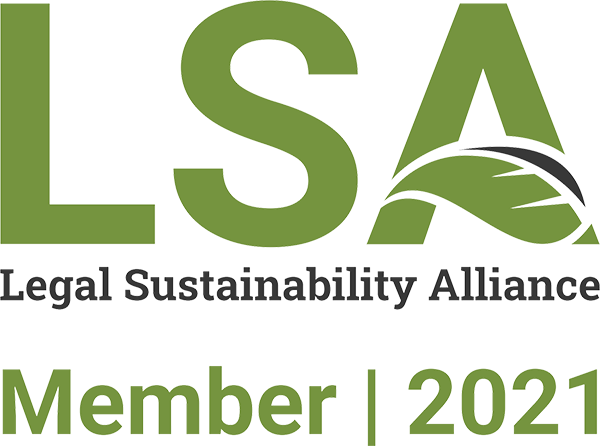A New European Guideline. Particularities for Romania
Similar to the other European states, Romania is also strongly affected by the COVID-19 pandemic that impacts the Romanian society in general, most of its economic sectors and its health system, in particular. Under these circumstances, both the European authorities, as well as the affected states, take actions to ensure, as much as possible, that the activity still continues. One sector where the European authorities are taking measures to ensure continuity of activity is that of the clinical trials.
For this purpose, the European Medicines Agency (“EMA”) published a Guidance on the management of clinical trials during the COVID-19 pandemic, version revised on 27 March 2020 (“EMA Guideline”). This is mainly addressed to sponsors and investigators, but it must be considered by all the parties involved in the clinical trial, such as the contract research organisations (CROs), the participants to the trial (the subjects) and not ultimately, by the national authorities.
The EMA Guideline mainly addresses the actions necessary in order to adapt the clinical trials to the new conditions, respectively trial participants who are in isolation or quarantine, limited access to public places (in Romania, this restriction includes hospitals for non-emergency medical investigations), as well as aspects regarding the health care professionals that are being allocated with priority to COVID-19 related duties. Furthermore, the EMA Guideline briefly addresses the topic of clinical trials for the testing of treatments for COVID-19, aspect also referred to by the national authority in Romania, ANMDMR.
We present below a brief description of the main measures that must be considered in relation to the ongoing clinical trials. The full document is available on the EMA website.
- Conducting a risk assessment of the impact that COVID-19 has on ongoing clinical trials
EMA recommends that an assessment should be made in relation to impact that the COVID-19 pandemic has on ongoing clinical trials, which should take into account all the national recommendations issued by the competent authorities in the context of the pandemic (e.g. travel restrictions, availability of trial staff to perform visits etc.), following which it can decide the measures that need to be implemented, depending on the applicable circumstances. EMA mentions that in establishing the measures, the accent should be placed on the participants’ health and safety, and the measures need to be proportional based on a risk-benefits assessment.
From the provisions of the EMA Guideline it results that this assessment should be performed mainly by the sponsors, without expressly excluding the involvement of the other parties involved, such as the CROs, in performing this assessment. The investigator should also make a risk assessment at the level of each clinical trial participant. The general recommendation is that these assessments should be documented on an ongoing basis, we believe in writing, for subsequent evidence purposes.
The National Agency for Medicines and Medical Devices of Romania (“ANMDMR”) published on its own website (in the COVID-19-related announcements section) an announcement requesting that companies conducting clinical trials in Romania should (i) identify the potential impact of the COVID-19 pandemic-related general protection measures on the current activities carried out within each trial and (ii) notify ANMDMR on the specific measures plan that needs to be put in place. ANMDMR states that such actions could be considered urgent safety measures with immediate implementation (on a case by case basis), as such are regulated by national legislation. If the respective measures will be urgent safety measures, the national legislation provides that the sponsor has the obligation to also inform simultaneously the ethics committee (in Romania this being the National Bioethics Committee of Medicines and Medical Devices – CNBMDM), and thus an ex-post control of such measures is performed.
If the changes considered are important and likely to impact the safety of the participants or to change the interpretation of scientific documents, but do not require an immediate action from the sponsors or investigators, they could be submitted as substantial amendments with the competent authorities (ANMDMR and CNBMDM) for an ex-ante control.
The EMA recommendation is that any contact with the authorities related to the “COVID-19” topic be marked with this wording in its subject section, in order to be treated with priority.
- What changes may be considered within the clinical trial?
The following are listed among the measures proposed by the EMA Guideline, and should be applied to the extent possible:
- conversion of physical visits into phone or video communication with the participants, postponement or even cancellation of visits, to ensure that only strictly necessary visits are performed at trial sites; considering the recent legislation in Romania, ANMDMR issued an announcement that only visits considered urgent could still be performed physically.
- a temporary halt of the trial at some or all trial sites;
- in exceptional circumstances, transfer of participants to other investigational sites away from risk zones, or closer to the participant’s home. If there is an urgent need to open a new trial site (e.g. outside the hospital), the EMA considers that this could be implemented under certain circumstances, as an urgent safety measure;
- suspension or slowing down of recruitment of new trial participants;
- extension of the duration of the trial;
- if the participant cannot travel to the trial site to have these performed, the laboratory analyses or other tests may also take place in local laboratories that hold the certifications and authorisations required under the national laws, and the units where the clinical trial takes place should inform the sponsor about this. We believe, in this case, that this form of cooperation with the local laboratories should be formalized under a written agreement that establishes the obligations and the scope of work with the respective laboratory.
-
- Certain possible changes with respect to the informed consent?
The participants’ consent in relation to their participation in the trial should continue to be collected in writing, in compliance with the trial protocol, subject to the applicable national legislation.
The EMA Guideline states that sponsors should carefully assess the pertinence of adding new participants in ongoing clinical trials, considering that priority should be given to clinical trials for COVID-19 or for serious diseases with no satisfactory treatment option.
In case of trials aiming to test treatments for COVID-19, the sponsor should use alternative procedures to obtain informed consent, as it is likely that a paper form signed by the participant could not be removed from the isolation premises and kept in the file. The EMA Guideline indicates for this purpose oral consent in the presence of an impartial witness. We believe electronic systems could also be considered (e.g. remote signing), but we recommend verifying in advance with the ANMDMR and with CNBMDM any such means of obtaining the consent.
For other clinical trials, when a re-c0nsent might be necessary from the participants (for example for the implementation of certain urgent changes with respect to the trial conduct for COVID-19 related reasons), alternative means of obtaining re-consent may be considered, such as via phone or video-calls, but also by obtaining oral consent supplemented with email confirmation, so as to avoid the participant’s travel to the trial site only for that purpose. All these should be documented and preserved and confirmed by way of normal consent procedures (form personally signed and dated by the participant) at the earliest opportunity.
- Alternative means to ensure the monitoring of participants – the remote access to the medical records of the participant
An interesting alternative mentioned in the EMA Guideline concerns the remote source data verification, whereby remote access to the participant’s electronic medical records is granted to sponsors. Although this might seem like a practical solution in the context of this pandemic, the fact that the sponsor might have access to other data also, especially sensitive personal data such as health-related data, might raise personal data protection issues, being necessary to ensure that access is limited to the data strictly required for the trial. Such monitoring is currently allowed in few EU member states and cannot be used unless expressly accepted by the competent authorities.
- Starting new trials for COVID-19 treatment or for the treatment of other diseases
The EMA Guideline mentions that priority should be given to any clinical trial applications for the treatment for COVID-19. Additionally, ANMDMR indicated that it considers giving priority to the assessment of clinical trials for medicines for the treatment of COVID-19, undertaking that, depending on the number of applications and on the trial’s stage (priority given to phase III trials), it would finalize the assessment within a maximum envisaged term of 7 days. Even though it is not mentioned whether these are calendar or business days, it can be interpreted that the term should be calculated in calendar days, given the envisaged purpose of expediting the procedure. This commitment represents a significant improvement compared to the term provided by the national legislation of maximum 60 calendar days.
Even if the EMA Guideline does not prohibit the initiation of new clinical trials, EMA’s recommendation is that the feasibility of new clinical trials in the context of the COVID-19 pandemic, for other medicines than those required to treat COVID-19, should be critically and carefully assessed by sponsors.
In conclusion, we cannot but appreciate the promptness and openness shown both by the European authority, as well as by the national one in providing indications and support for ensuring the continuity of clinical trials and in supporting clinical trials for medicines that could help the fight against COVID-19 disease which, with every day that passes, is becoming the biggest medical urgency in history. On the other side, in order to ensure clinical trial compliance, particularly with respect to the participants’ health and safety, as well as in relation to their personal data protection, we believe that the parties involved (the sponsor, CRO etc.) must show a particular diligence in adapting clinical trials to the new reality.







